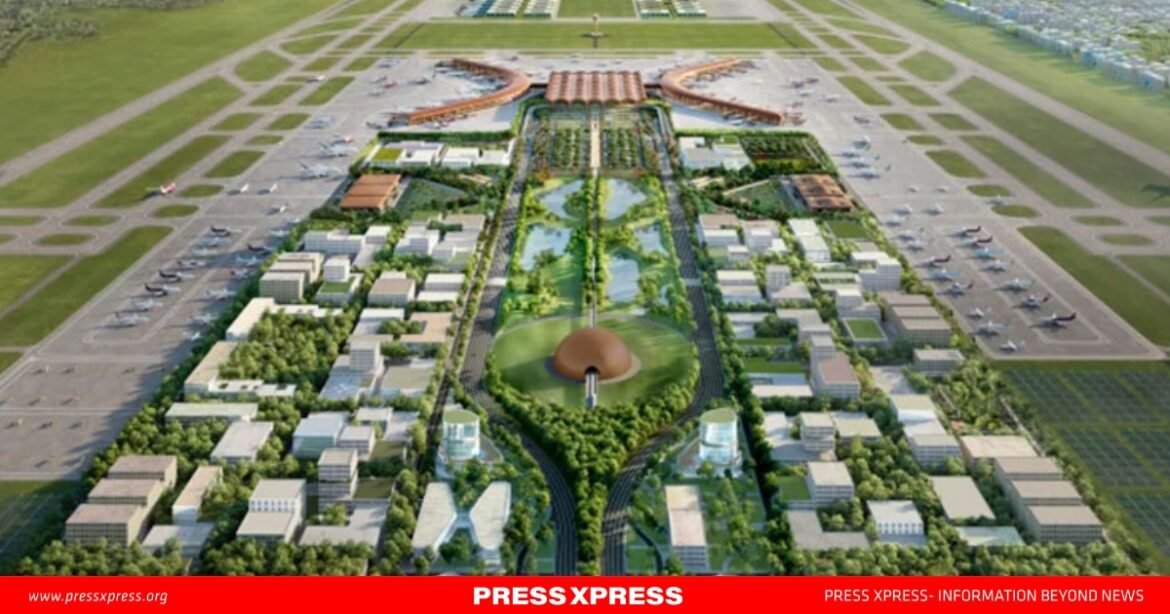Cambodia’s infrastructure landscape is undergoing a radical transformation. With a focus on improving connectivity and logistics, the nation is embarking on a series of large-scale projects that will not only enhance its regional competitiveness but also position it as a central hub for trade, tourism, and transportation in Southeast Asia. These ambitious ventures, fueled by significant investments from both local and international stakeholders, are set to drive economic growth and diversify Cambodia’s industries in the years ahead.
Sihanoukville Port: A Strategic Logistics Gateway
The Sihanoukville Autonomous Port (PAS), Cambodia’s only deep-water seaport, is undergoing critical upgrades aimed at significantly increasing its capacity. By 2032, PAS is expected to handle 3 million TEUs (twenty-foot equivalent units), a major step towards making it a regional logistics hub. The upgrades, which include expanded ship berths and the acquisition of state-of-the-art machinery, will help the port accommodate larger vessels and manage more cargo. Complementing this is the Phnom Penh-Sihanoukville Expressway, which has slashed travel time between the capital and the port. Meanwhile, the Sihanoukville International Airport is undergoing expansions to handle an increasing number of international flights, ensuring better connectivity for both goods and people. These developments are set to play a crucial role in positioning Cambodia as a logistics powerhouse in the region.
Techo International Airport: Cambodia’s Gateway to the World

Scheduled to open in July 2025, the Techo International Airport will be a game-changer for Cambodia’s air connectivity. Located just south of Phnom Penh, the modern airport will initially handle between 13-15 million passengers annually. In the long run, the airport’s capacity will be expanded to accommodate 45 million passengers per year by 2050, making it one of the largest in Southeast Asia. This airport will not only boost international travel but also open up new opportunities for trade and tourism. The project is expected to spur development in surrounding areas, including residential, commercial, and infrastructure projects. In turn, these developments will drive economic growth and enhance Cambodia’s attractiveness as an investment destination.
Funan Techo Canal: Revolutionizing Regional Trade

One of the most ambitious infrastructure projects currently underway is the Funan Techo Canal, a 150+ kilometer waterway that will link Phnom Penh to the coastal province of Kep. This $1.7 billion project, funded by a partnership between Cambodia and China, is set to revolutionize Cambodia’s supply chain and logistics capabilities. The canal will reduce shipping costs by up to 70%, providing a more efficient and cost-effective route for goods to travel to and from Cambodia. Upon completion, the Funan Techo Canal will reduce Cambodia’s reliance on ports in neighboring countries, allowing the nation to become a more competitive player in the regional and global supply chains. This will also help boost trade by easing the flow of goods, both within Cambodia and internationally.
Railway Developments: Strengthening Regional Connectivity

Cambodia is making significant strides in expanding its railway infrastructure. Key projects include upgrades to existing rail lines such as Phnom Penh-Sihanoukville and Phnom Penh-Poipet, which will be modified to support higher-speed operations. Additionally, plans are underway for a high-speed rail network linking Cambodia with neighboring countries such as China, Thailand, and Vietnam. With an estimated price tag of $4 billion, the project is still in its early stages but promises to enhance regional connectivity and support trade and tourism. The railway upgrades are part of Cambodia’s broader vision to improve transport efficiency, reduce logistics costs, and provide seamless movement of goods and passengers across borders, ultimately strengthening the country’s competitiveness on the global stage.
Road Network Expansion: Connecting Cambodia’s Growth

The expansion of Cambodia’s road network is another key area of focus. The Phnom Penh-Sihanoukville Expressway, completed in 2022, is already improving travel times between the capital and the coastal region. The Phnom Penh-Bavet Expressway, under construction and expected to be completed by 2027, will further enhance access to the Vietnamese border. Additionally, the Phnom Penh-Siem Reap-Poipet Expressway, a 400 km route with an estimated cost of $4.2 billion, is currently in the feasibility stage and, once completed, will strengthen connectivity between Cambodia’s key cities and improve regional trade links. These expressways will not only make internal transportation more efficient but will also open up new trade routes and stimulate economic activity by reducing logistics costs and promoting tourism across the country.
Cambodia’s infrastructure projects are not just about building roads, railways, and ports; they represent a strategic shift towards making the country a regional leader in trade, tourism, and logistics. With substantial investments pouring in from both local and international partners, Cambodia is laying the foundation for future growth and economic diversification. From the upgrades to Sihanoukville Port to the construction of Techo International Airport, these projects will open up new avenues for Cambodia to integrate more seamlessly into global supply chains, attract investment, and improve the livelihoods of its people. As these projects continue to develop, Cambodia’s position as a dynamic player in Southeast Asia’s economic landscape is set to solidify, offering immense opportunities for growth and prosperity.


